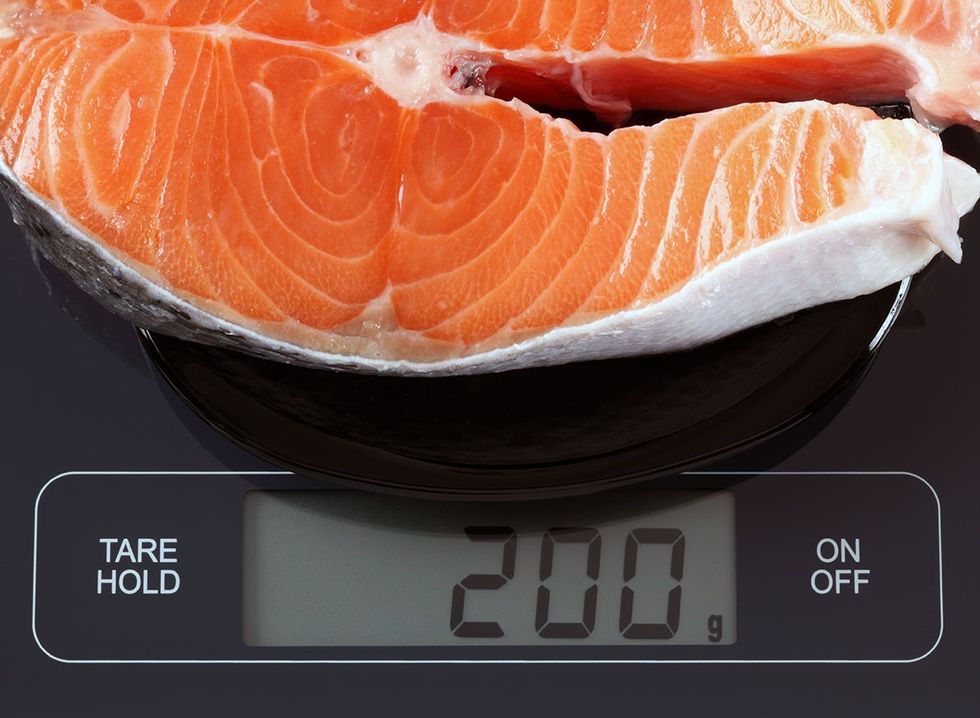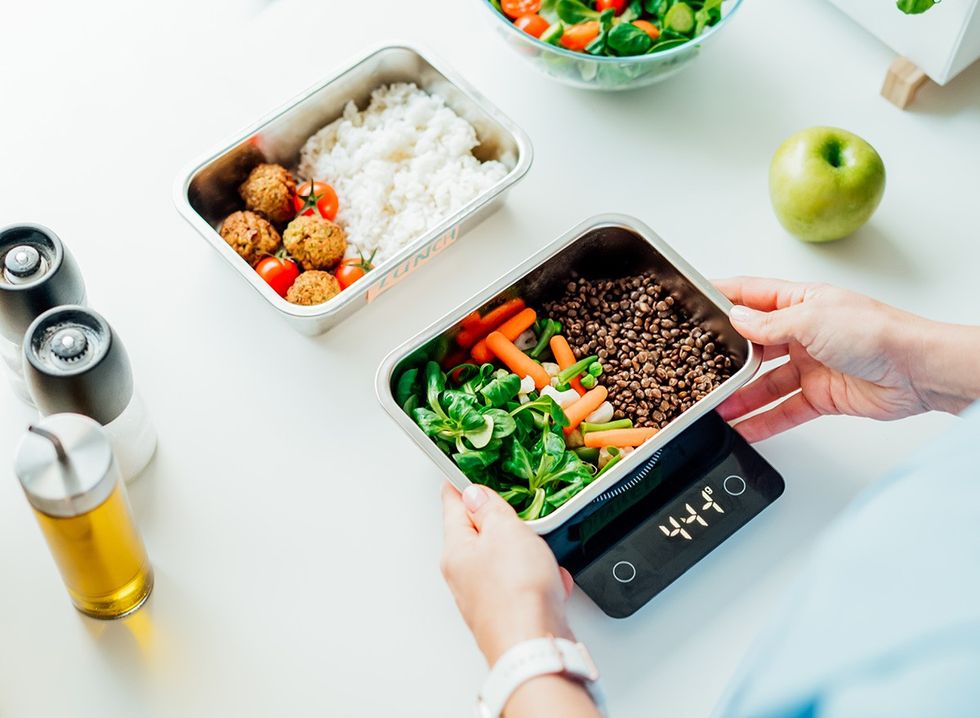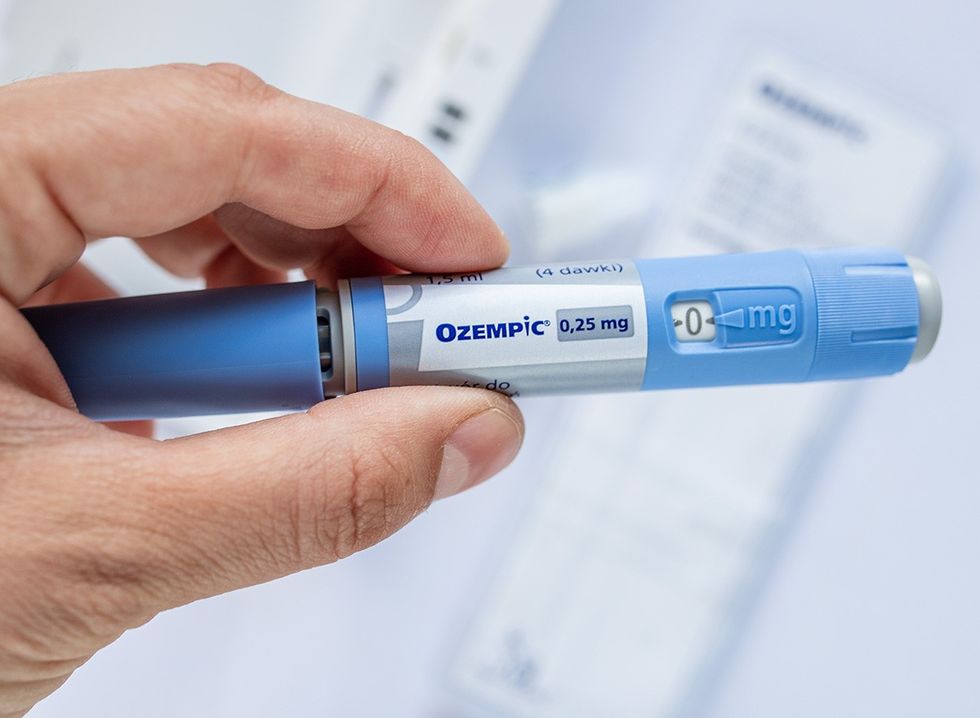Are you struggling to lose weight without constant hunger pangs? Protein might be the secret weapon you're missing. Dani Marenburg is a double-certified nutrition coach who has helped over 1,000 women achieve their weight loss goals. On her podcast Mindin’ My Macros, Danny shares her top protein hacks that can help you melt fat fast while keeping you satisfied. We also asked other experts to weigh in with their proven tips. Whether you're a protein novice or looking to optimize your intake, these tips will give you the edge in your weight loss journey.
Protein Does More Than Build Muscle
Protein is often overlooked and under-consumed, but it's essential for numerous body functions. Dani says in her podcast, "Protein plays a vital role in numerous body functions from muscle repair and immune support to hormone production and enzyme activity."
Linda Sun, a nutrition expert, adds, "Protein repairs tissue, creates antibodies, gives us energy, makes up the cells that make up basically every part of us."
Protein Boosts Your Metabolism
 Shutterstock
Shutterstock
For women and men alike, protein is crucial for muscle development, which supports overall strength, metabolism, and healthy body composition. Dani explains, "Protein is especially crucial for women and men as it supports muscle development, which is key for overall strength for metabolism and metabolic health and maintaining healthy body composition."
"Protein is one of the most essential tools to help you achieve a weight loss and body recomposition goal," says Autumn Bates, a Clinical Nutritionist. "Proteins help you tap the fat burning and achieve your weight loss goals," she adds
Eating Protein Won't Make You Bulky
Dani in her podcast addresses common protein misconceptions. "The fear of getting bulky from protein couldn't be farther from the truth," she explains. "Adequate protein intake benefits both men and women of all activity levels and ages by supporting muscle maintenance, but also supporting bone health and even weight management."
Dave Asprey, founder of Bulletproof and the “Father of Biohacking” adds, "Protein is one of the most essential tools to help you achieve a weight loss and body recomposition goal."
High Protein Diets Are Safe for Most People Fiction
Dani in her podcast also clarifies the misconception about protein and kidney health: "Research actually shows that healthy individuals with no preexisting kidney conditions can safely consume higher protein diets without actually causing any harm on the kidneys."
However, it's important to note that Harvard Health warns, "People that eat very high protein diets have a higher risk of kidney stones."
Your Body Can Handle More Than 30g of Protein at Once
Addressing another myth, Dani states, "There is an old study on 30 grams of protein being the maximum of amount of protein that one's body can efficiently absorb and process at a time."
However, she explains that newer research has shown "the body is constantly breaking down protein into amino acids and the small intestine can actually absorb and store those amino acids to use later when your body needs them."
The 1g Per Pound Rule Is a Good Starting Point
There's no one-size-fits-all protein amount. Dani recommends in her podcast, "A good rule of thumb is to aim for a protein amount that is anywhere from 0.8 to 1.2 grams per pound of body weight." She suggests starting with a one-to-one ratio: consuming about a gram of protein per pound of body weight, up to 165 grams.
This aligns with Asprey's recommendation: "I recommend getting at least 1 gram of protein per pound of your ideal body weight per day."
More Protein Can Help Build Muscle Faster
 Shutterstock
Shutterstock
For those struggling to build muscle, Dani advises, "If you're somebody who really struggles putting on muscle and no matter how hard you feel like you're trying, it's just not happening... I'd recommend skewing a little bit higher on that protein scale, maybe closer to 1.1 to 1.2 grams per pound of body weight to help with muscle development."
Linda Sun shares her personal experience: "A protein range of a hundred to 150 grams for me made sense as someone who's pretty active, works out almost every single day, and is trying to build a little bit of muscle."
RELATED: Slash Your Belly Fat Risk by 80 Percent in Just Six Weeks
Pregnancy and Breastfeeding Increase Protein Needs
 Shutterstock
Shutterstock
Dani, in her podcast, also notes that protein needs can change during pregnancy and breastfeeding: "Your protein intake will increase through your trimesters and remain slightly elevated during breastfeeding to support the growth and development of both you, the mom, and your baby."
You Don't Need Meat to Get Enough Protein
 Shutterstock
Shutterstock
Dani reassures that getting sufficient protein doesn't mean eating only meat. "There are so many amazing plant-based protein options too, such as beans, lentils, tofu, quinoa, that can also contribute to meeting your protein requirements," she states.
The British Heart Foundation suggests, "White fish is a low-fat protein source. Oily fish, such as sardines, mackerel or salmon, are a little higher in fat but contain omega-3 fatty acids, which are heart healthy."
Plant-Based Eaters Need Slightly Less Protein
For plant-based eaters, Dani suggests in her podcast, "You can aim for a slightly reduced goal. So anywhere from 0.6 to 0.8 grams of protein per pound of body weight, that's a great place to start for plant-based."
Your Body Might Need Time to Adjust to More Protein
 Shutterstock
Shutterstock
When increasing protein intake, Dani warns of initial side effects: "As your body starts to regulate and adjust to the increase in protein intake, you might experience a little bit of bloating that typically lasts anywhere from one to two weeks and is completely normal." She also mentions increased feelings of fullness, assuring that the body will adapt over time.
Asprey confirms this effect: "Protein increases satiety by increasing the hormones that tell your body that it's full.
RELATED: The Top Foods Proven to Flatten Your Belly
Slowly Increasing Protein Intake Works Best
Dani advises in her podcast, "I always like to recommend giving yourself a good two weeks of increasing your protein. And again, my motto is that you don't have to go from zero to a hundred. You can start by slowly increasing your protein day over day, week over week, until you get close to or at your goal."
Build Your Meals Around Protein
 Shutterstock
Shutterstock
Dani offers practical tips for boosting protein consumption, starting with: "Build your meals around a protein source. So this does not mean it has to be chicken breast, and then you have broccoli and rice. Absolutely not."
Small Increases in Portion Size Add Up
She suggests, "Maybe you're including four ounces of shrimp, maybe include five ounces of shrimp. That's a very easy way to start to bump up your protein intake without it feeling too overwhelming."
You Can Ask for Extra Protein When Eating
 Shutterstock
Shutterstock
For eating out, Dani recommends, "If you're out and about, and let's say you're going out to dinner, you can always ask for extra protein."
RELATED: Reverse Your Risk of Diabetes with These Simple Dietary Changes
Smart Swaps Can Boost Your Protein Intake
Dani shares her favorite protein swap: "One of my favorites is chickpea pasta. So instead of just having regular pasta, I sub it for chickpea pasta because it has much more protein because it's coming from chickpeas, which are a good protein source."
Lean Proteins Help Balance Fat Intake
 Shutterstock
Shutterstock
For those concerned about fat intake, Dani advises, "If you struggle with also increasing your fat along with your protein, which I'll often see opt for lean protein sources like lean ground, Turkey, Turkey, bacon, chicken, white fish, shrimp, lean beef, pork tenderloin."
However, Dr. Katherine Zeratsky, RD, LD, from the Mayo Clinic, warns, "A high protein diet that contains lots of red meat and higher amounts of saturated fat might lead to a higher risk of heart disease and colon cancer."
Protein Benefits Go Beyond Weight Loss
Dani in her podcast highlights that protein isn't just about weight management: "Protein is such an important aspect of your diet that supports muscle growth. AIDS in muscle recovery, promotes weight management, hormone production and regulation. It supports the immune system and so much more."
Asprey adds, "Protein also helps you preserve lean muscle when losing weight, which is essential for health and longevity."
RELATED: 10 Anti-Aging Foods That Will Help You Achieve Forever-Young Skin, According to an Expert
Balance Is Key - Don't Forget Other Nutrients
By implementing these strategies, you can harness the power of protein to transform your body and overall health. As Dani concludes, "If you're looking to dive even deeper to understand how to properly pair a specific protein goal with a carb and fat goal to support your health goals, whether that's to build muscle, reduce fat, regulate blood sugar, to eliminate cravings in that afternoon slump, or simply looking for a balanced and sustainable way of eating to get off the hamster wheel of yo-yo dieting," consider exploring more resources on macro-based nutrition.
However, Dr. Zeratsky cautions, "Some high-protein diets limit carbs so much that you might not get enough nutrients or fiber. This can cause problems such as bad breath, headache, and constipation."
Don’t forget, that while protein is crucial for health and weight management, it's important to maintain a balanced diet and consult with a healthcare professional before making significant changes to your diet. And if you enjoyed this article, don't miss I’m a Nutritionist and Here Are 25 Weight Loss Truths You Need to Hear.



















 jillianrfit/Instagram
jillianrfit/Instagram Shutterstock
Shutterstock Shutterstock
Shutterstock jillianrfit/Instagram
jillianrfit/Instagram Shutterstock
Shutterstock Christopher Michael/Facebook
Christopher Michael/Facebook Christopher Michael/Facebook
Christopher Michael/Facebook







 Shutterstock
Shutterstock Shutterstock/Shift Drive
Shutterstock/Shift Drive Shutterstock
Shutterstock Shutterstock
Shutterstock Shutterstock
Shutterstock Shutterstock
Shutterstock Shutterstock
Shutterstock Shutterstock
Shutterstock

 Shutterstock
Shutterstock Shutterstock
Shutterstock Shutterstock
Shutterstock Shutterstock
Shutterstock Shutterstock
Shutterstock Shutterstock
Shutterstock Shutterstock
Shutterstock


 I'm a Nutritionist and These 9 High-Protein Snacks Keep My Clients Full While Losing 50 Pounds
I'm a Nutritionist and These 9 High-Protein Snacks Keep My Clients Full While Losing 50 Pounds
 Shutterstock
Shutterstock 2. Processed FoodsShutterstock
2. Processed FoodsShutterstock Shutterstock
Shutterstock Shutterstock/Prostock-studio
Shutterstock/Prostock-studio Shutterstock
Shutterstock Pro TipsShutterstock
Pro TipsShutterstock Shutterstock
Shutterstock Shutterstock
Shutterstock Shutterstock
Shutterstock Shutterstock
Shutterstock Don’t Drink as Much AlcoholShutterstock
Don’t Drink as Much AlcoholShutterstock Most Women on GLP-1s Are Making a Few Common MistakesShutterstock
Most Women on GLP-1s Are Making a Few Common MistakesShutterstock Soda and Sugary DrinksShutterstock
Soda and Sugary DrinksShutterstock Shutterstock
Shutterstock Eat BreakfastShutterstock
Eat BreakfastShutterstock And Improve Insulin SensitivityShutterstock
And Improve Insulin SensitivityShutterstock Belly Flab Strip Tip: Sugar and Fat Calories Leave Its Mark on Your BodyShutterstock
Belly Flab Strip Tip: Sugar and Fat Calories Leave Its Mark on Your BodyShutterstock Shutterstock
Shutterstock The Drugs Mimic the GLP-1 Hormone Naturally Produced by the BodyShutterstock
The Drugs Mimic the GLP-1 Hormone Naturally Produced by the BodyShutterstock 3. Deep-Fried ItemsShutterstock
3. Deep-Fried ItemsShutterstock